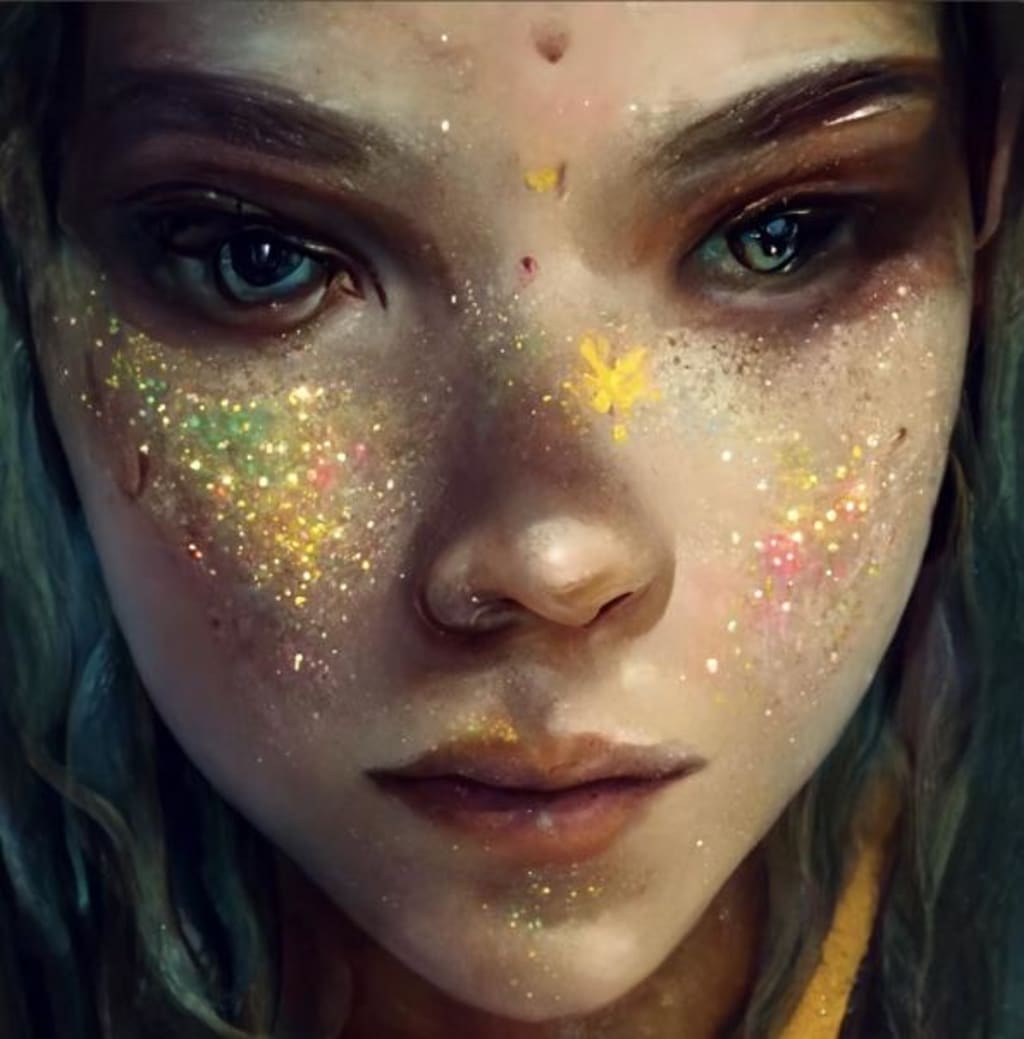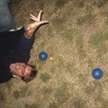
The Dragon and the Child
The irrational madness of men destroys beauty and hope. Take for example this tale. It very much happened yet it also may be considered as a metaphor.
The Dragon Mascard strolled through the forest. The fairies fluttered excitedly about, dashing in playful games dodging the majestic movements of the magnificent, magical beast. Rarely did dragons stalk these grounds. “Why are you here Mascard,” asked a fairy flying by the dragon’s ear. He twitched his ear like a horse twitches its tail to swat away flies.
Mascard had descended from the skies into the forest floor because of a smell and a sight which intrigued him. A shiny flash had gleamed his eye, rising from the earth and through the trees to reach him in the clouds. The dragon rummaged through the dragon underbrush sniffing and peering in search of what had caught his notice. He moved at a brisk yet unhurried pace, for time is nothing to dragons but an illusion which they can control. Mascard found the source of the gleam. A human toddler dusted in silver sparkles. This curious sight caused Mascard to search for other humans, for humans most often travel in packs and rarely leave their young unprotected. Mascard could neither hear, smell, see or sense any other human nearby. His massive sharp taloned paws shook the earth as he lumbered near the child. The infant drenched in silver sparkles standing on chubby, stubby soft legs held no fear of the dragon. She raised her arm to its sniffing snout and extended and retracted her fingers in a welcoming gesture. She gurgled sloppy, slippery baby babble noises. A droplet of saliva fell from Mascard’s leathery lip, for the smell of the girl and her tender flesh seduced his appetite. The saliva made a puddle near the girl. She slipped in it and laughed. Her laughter caused the dragon to laugh which in turn caused the girl to laugh with enhanced adorable glee.
“What is this?” asked a fairy.
“Have you seen who left this child here?” asked the dragon, telepathically to the fairy.
“We did not,” said the fairy. “Humans are curious, crude creatures. They posses no magic yet make up for this deficiency by imagining themselves the most magical. They both worship and resent magical creatures. They fear yet adore us.”
The dragon sniffed the child closer. “She smells of fire spice, lilac, with a hint of sulfur. It is a smell that appeals to dragons. As does her artificial shine.”
“Artificial shines are humans’ specialty,” the fairy said.
“What brought this child here this in this condition?” asked the dragon. “The humans abandoned her. Left her to die. The shine and smell of her was surely meant to lure a dragon. To entice me and bring me to the ground. To kill me? But there are no other humans within miles.”
“Perhaps this girl, bait wandered off from the hunters,” suggested the fairy.
The dragon huffed in consideration. “Perhaps so,” he grumbled.
The fairy, flittering by the dragon’s eye, its gossamer wings glinting in the sun, put a finger to its chin. “Perhaps a sacrifice? Many humans have decided to worship dragons.”
“And fear us,” Mascard said. “They fear our power. Yet we will not harm humans and their cities if they pose no threat to us.”
“And yet they do not trust that this is so,” said the fairy. “They create their gods in the images of themselves, in all their follies and fears, for despite their amazing imaginations they cannot conjure anything else. If humans had the powers of dragons; the brute force, the flight, the fire, they would use it to conquer all the earth. And then destroy all the earth, wittingly or otherwise.”
Mascard nodded. “Indeed, it is true.”
“You do not desire to eat the child?” asked the fairy. “I saw you salivate at her.”
The toddler again made babbling squeals as she climbed on the dragons hard clawed toe.
“Although they made her smell and look delicious, I know it is just an illusion,” the dragon said. “As dim as humans are, they are intelligent enough that it would be immoral to eat one. Especially a defenseless child who seeks me no harm and is so trusting.”
“So, what will you do?” asked the fairy. “Leave her? Let her die? Pretend you did not see her and find her?”
The exhaust through the dragon’s nostrils caused the girl’s blond hair to blow back. She giggled and said “again.”
“Perhaps I should have not succumbed to my curiosity and temptation and have flown on by. Perhaps I should pretend that’s what I did and try to forget my interaction with this girl ever happened. Perhaps that is what most dragons would do.”
“But what will you do, Mascard?” asked the fairy.
**
In a village in the shadow of the mountains where Dragon Valley lays, a priest rips an infant from a crying mother. Her husband holds his wife, steadying her, from collapsing. The mother cries the girl’s name: “Isadora!”
“It must be done,” the child’s father says.
In the village at times the villagers spot the dragons flying overhead. They fear them and worship them. They know the dragons contain a power that could destroy them. The elders of the village envy this power. One elder declared himself a prophet. He declared that he received a vision from the dragon god that the village needed to sacrifice one of their own to the dragons. Years ago, the prophet attempted to rape Isabel’s mother. She repelled him by throwing boiling water at his face. He took his revenge against her by declaring that the dragon god picked her daughter to sacrifice. Her husband was a pious man of great faith who feared for his eternal soul and that of his family. He believed the prophet’s lies that the dragon god picked his daughter to sacrifice. And the lies that if his daughter was sacrificed that he and his family would be let into heaven, to receive eternal glory and happiness and relief from the hard labors and sadness of life made miserable for the poor and trusting.
The prophet and the elders had other motivations. They wished to destroy the dragons and end dragon valley. A new powder had been invented that causes damaging explosions when it contacts fire. They took Isadora and filled her stomach with this powder. They painted her skin silver. They mashed sulfur, hot spice and lilac in her skin and hair. They took her into the forest and abandoned her. They prayed and made sacrifices to their gods that a dragon would find her.
**
“I will save her,” answered Mascard to the fairy. He picked her up in his claws and spread his wings and whooshed back up into the sky, knocking tree branches before exiting the forest canopy. He flew into his home, Dragon Valley. “What is this?” asked a fellow dragon. “A human child,” answered Mascard. “She was abandoned and left to die among nature. I decided to save her instead.”
“Is that wise?” asked the dragon.
“Humans are growing in population and advancing in technologies. In time I believe it will be required to live in peace with them. Either that or destroy them. Or else dragons and the world may be destroyed instead.”
“An easy task to kill humans,” sneered another nearby dragon. “Almost too boring to derive any pleasure from.”
“They are disgusting but they are cleverer than they seem,” said another dragon. “And more sinister.”
Isadora began to cry.
“Humans are so fragile,” a dragon said. “She will be impossible to keep alive.”
This dragon’s prediction soon proved true. Isadora died from the poisoning of the exploding powder in her stomach. A dragon then blew fire over the corpse to disintegrate it, following the dragon’s customs of how to care for dead bodies. When the dragon fire touched her, she exploded.
Four dragons were slightly injured from the explosion. Yet from that day on it became Dragon Law, that no human is to ever enter Dragon Valley, no human is to see a Dragon. And thus, it became that the magic and majesty, and beauty of dragons was denied to humans forevermore.
About the Creator
Enjoyed the story? Support the Creator.
Subscribe for free to receive all their stories in your feed. You could also pledge your support or give them a one-off tip, letting them know you appreciate their work.






Comments
There are no comments for this story
Be the first to respond and start the conversation.